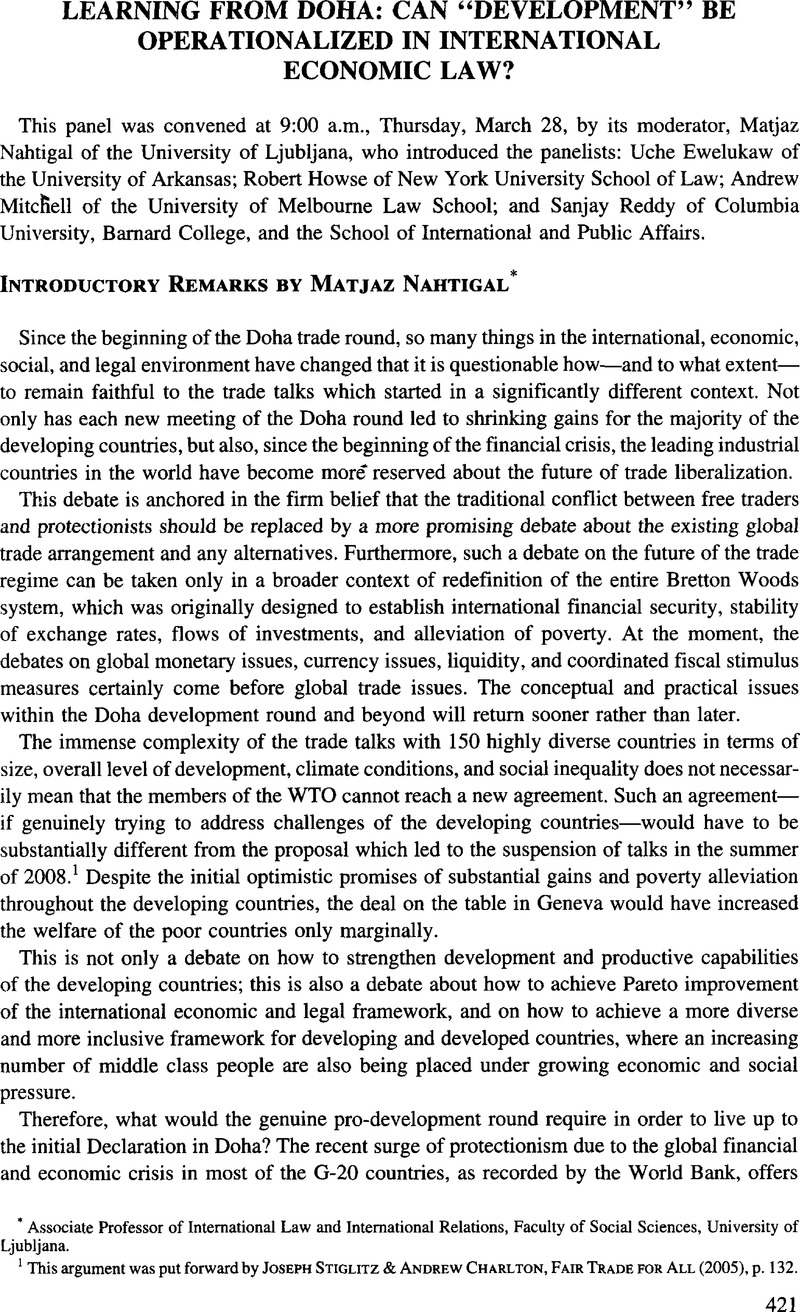No CrossRef data available.
Published online by Cambridge University Press: 28 February 2017

1 This argument was put forward by Joseph Stiglitz & Andrew Charlton, Fair Trade for All (2005), p. 132.
2 Ha-Joon Chang, Painting Carmakers Green; Developed Nations are Trying to get Around WTO Subsidy Rules by Portraying their Industry Bail-outs as Green Initiatives, The Guardian, Feb. 3, 2009.
3 For a detailed analysis of this argument see Singh, Ajit, S&Dt: The Multilateral Trading System and Economic Development in the Twenty First Century in Putting Development First (Gallagher, Kevin ed., 2005), esp. p. 252 and pp. 259-261.Google Scholar
4 Christian Barry & Sanjay Reddy, International Trade & Labor Standards 80-85 (2008). ‘Roberto Unger, Free Trade Reimagined 193-212 (2007).
6 Robert Howse, Mainstreaming the Right to Development in International Trade Law and Policy at the World Trade Organization, UN doc E/CN.4/Sub.2/2004/17, June 2004.